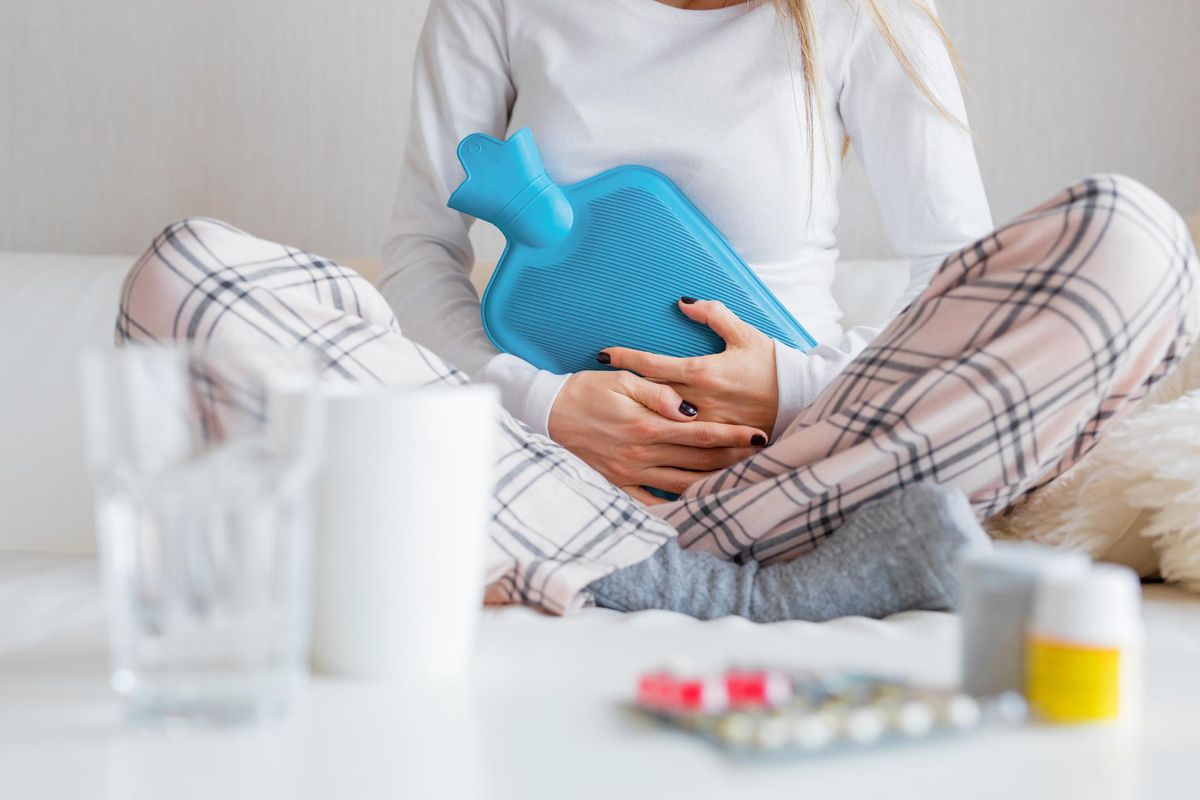If you don’t like to say the words “painful periods,” you can just say “dysmenorrhea”— it will sound better, perhaps, but you'll still be uncomfortable. So let’s talk about what’s causing the pain and how you can make it better.
Let’s first discuss the difference between primary dysmenorrhea and secondary dysmenorrhea. Primary dysmenorrhea is sort of your garden variety menstrual cramps, caused by chemicals that the uterus makes that lead to cramping. Secondary dysmenorrhea is caused by abnormalities of the pelvic organs, which lead to cramps.
So let’s dig deeper into primary dysmenorrhea. The nasty chemicals that cause the cramps are prostaglandins, and they’re made by the uterus around the time of our periods. Remember that the uterus is a muscle, and these prostaglandins cause that muscle to contract. They also can cause the smooth muscles of our gastrointestinal tract to contract, so some women experience nausea and diarrhea. Prostaglandins can also cause fever and achiness, although those symptoms are a bit less common.
And importantly, we tend to make more prostaglandins during menstrual cycles in which we ovulate.
How do we help primary dysmenorrhea? We can take medications that block the production of more prostaglandins — and if you’re someone with regular cycles, you can even start taking these medicines (called “prostaglandin synthetase inhibitors”) the day before your period starts. Once the prostaglandins are there, they do their nasty work, so take these meds early!
And where do you get these medicines? At your corner supermarket or pharmacy: They may have fancy names, but they include ibuprofen and naproxen, and even aspirin. And, maybe you noticed that I said you make more of these nasty chemicals when you ovulate — so how do you not ovulate?
You can take a combined hormonal contraceptive (birth control) that works by blocking ovulation, and you can also take ibuprofen with it. And don’t worry about disrupting your body’s prostaglandin production: Next cycle, that uterus will still produce plenty of prostaglandins.
Of course, regular exercise is very helpful, too, as is eating a healthy diet. But if all these things don’t seem to be helping enough, check in with your gynecological care provider because this could mean you have secondary dysmenorrhea. Problems like endometriosis and fibroids can also cause cramping, and your provider will work with you to investigate whether those issues could be contributing — and then figure out how to help.
Dr. Mary Jane Minkin is clinical professor in the Department of Obstetrics, Gynecology, and Reproductive Sciences at the Yale University School of Medicine; host of the podcast “menopause:unumted”; and has been in private practice for more than 35 years. She’s on a mission to destigmatize women’s health issues, especially menopause.
- Natural Ways to Relieve Period Pain - HealthyWomen ›
- Clinically Speaking: Questions to Ask Your Healthcare Provider ... ›
- Mistakes You're Making During Your Period - HealthyWomen ›
- When It's More Than Period Pain - HealthyWomen ›
- Menstrual Disorders - HealthyWomen ›







